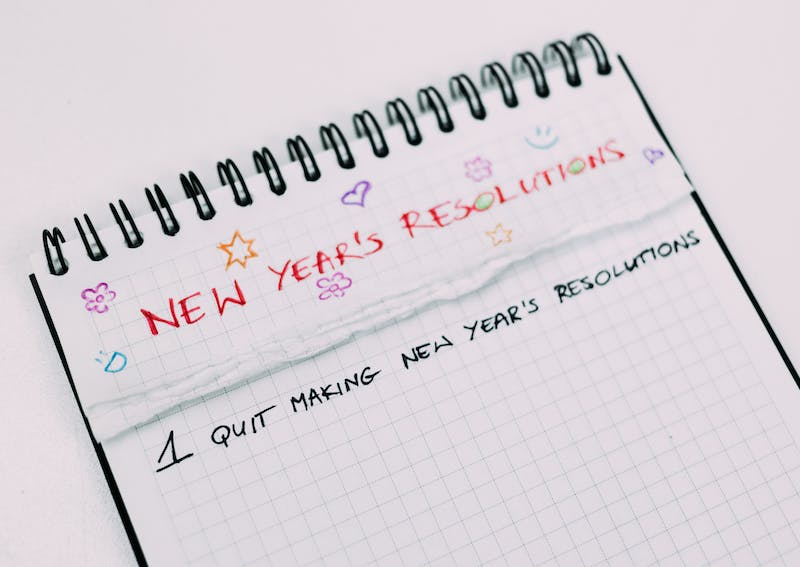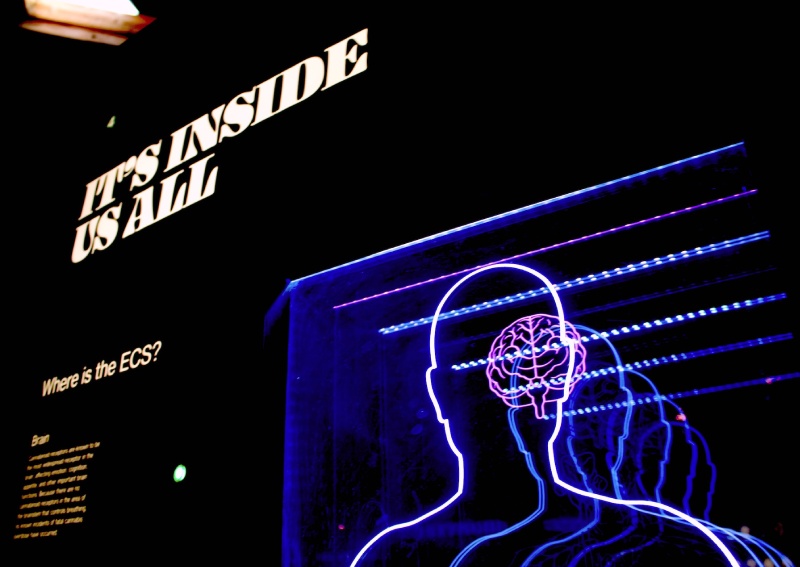Stick or twist: Why do people bother setting New Year's resolutions?

 PUBLISHED ONDecember 30, 2023 3:14 AMByAmierul Rashid
PUBLISHED ONDecember 30, 2023 3:14 AMByAmierul RashidChristmas is over and the dust has just about settled.
You're completely drained from the recent surge in festivities and social interactions and can't wait to catch a break.
But then you remember that Jan 1 is just around the corner and you've not put any thought into your New Year's resolution.
That's right, it's that time of the year where some will begin committing themselves (with atypical vigour) to achieving their goals.
"This will be my last cigarette."
"I think I'll head to the gym more often."
"I'm going to be more frugal and start saving up."
Most of us have seen or experienced this before, so we'd know that this can sometimes be a recipe for disaster.
Doing the same things again and again but expecting different results. Sound familiar?

It's all well and good having a New Year's resolution but following through and sticking with them throughout the entire year can be a challenge.
I've made countless New Year's resolutions to stay away from fast food or find methods to keep my weight in check.
I'd fare well enough for the first few weeks but by the time February comes along, I tend to crack and end up ordering something that won't do my waistline any favours.
These sentiments were echoed by JJ Ong, a 28-year-old AsiaOne spoke to.
When asked about New Year's resolutions of yesteryears, he recalled one about wanting to "exercise more" at the turn of the year.
His lack of a follow-up statement suggests that he too did not end up achieving his personal goal.
It's been awhile since he's set himself a New Year's resolution, and the reason is simple.
"A New Year's resolution is essentially just goal-setting. And we don’t need to wait for the new year to set goals.
"We can do them anytime when we are reviewing our lives," he said.
Chances are that many of us would sing the same tune.
Yet we, along with millions of others around the world, rely on this one arbitrary date to partake in a goal-setting ritual.

The fresh-start effect.
This term might seem foreign but if you've ever made a New Year's resolution, then you are more familiar with it than you think.
According to Norwegian technology company Timely, the fresh-start effect refers to the human tendency to "take action towards achieving a goal" after a special occasion or key date has passed.
It seems, Timely shared, that people are more prone to reflection when they hit important milestones in life.
Whether it's a birthday or anniversary — or in this case, a new year — we often make a conscious effort to bookmark the crossing of a landmark.
Sometimes it's the closing of a chapter or maybe a new era dawns. This presents us with an opportunity to wipe the slate clean.
And that's where the fresh-start effect works its magic.
[[nid:562460]]
Think of it as "mental accounting", where the past is left behind and an aspirational future seems more tangible.
In a study published in Psychological Science, researchers presented causal evidence that temporal landmark denoting the beginning of a new time period increases people's intentions to start pursuing a goal.
So this isn't just a fascination with the new year. It also happens at the start of a new month, week or term break.
The study goes on to propose that people tend to use these landmarks as psychological disassociation from their past and imperfect self.
In simpler terms: New year, new me.
In a separate study published in PLOS One, researchers grouped participants' goals into two categories — avoidance goals and approach goals.
Avoidance goals are when an individual prevents an undesired behaviour, such as wanting to quit smoking or drinking.
While approach goals refer to "adopting a new behaviour", such as wanting to eat healthier or head to the gym more regularly.
Unsurprisingly, those who set approach goals were "significantly more likely" to stick with them than those who set avoidance goals.
Knowing the science behind our behaviours does have its merits.
What we decide to do with the information is a completely different matter.
But if we can find a renewed energy or sense of purpose to help overcome procrastination or achieve personal goals, then why not give it a shot?
On a more personal level, I realise that many of my New Year's resolutions tend to be avoidance goals.
So maybe this time around, it might be worth setting a few approach goals and hopefully, I'd be able to get past February.
ALSO READ: How to actually keep your New Year's resolutions next year
amierul@asiaone.com
No part of this story or photos can be reproduced without permission from AsiaOne.